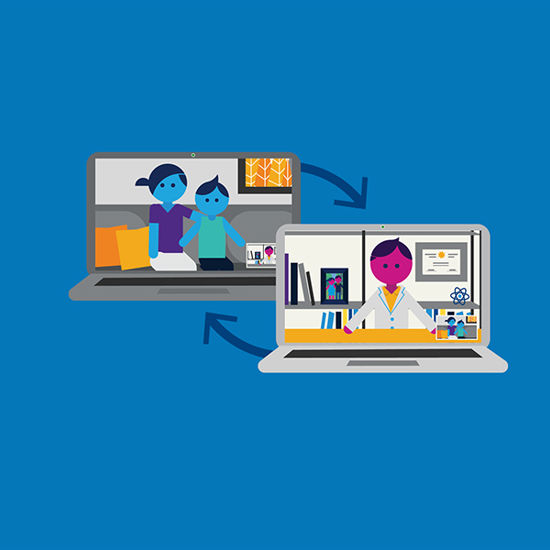- Doctors & Departments
-
Conditions & Advice
- Overview
- Conditions and Symptoms
- Symptom Checker
- Parent Resources
- The Connection Journey
- Calm A Crying Baby
- Sports Articles
- Dosage Tables
- Baby Guide
-
Your Visit
- Overview
- Prepare for Your Visit
- Your Overnight Stay
- Send a Cheer Card
- Family and Patient Resources
- Patient Cost Estimate
- Insurance and Financial Resources
- Online Bill Pay
- Medical Records
- Policies and Procedures
- We Ask Because We Care
Click to find the locations nearest youFind locations by region
See all locations -
Community
- Overview
- Addressing the Youth Mental Health Crisis
- Calendar of Events
- Child Health Advocacy
- Community Health
- Community Partners
- Corporate Relations
- Global Health
- Patient Advocacy
- Patient Stories
- Pediatric Affiliations
- Support Children’s Colorado
- Specialty Outreach Clinics
Your Support Matters
Upcoming Events
Child Life 101
Wednesday, June 12, 2024Join us to learn about the work of a child life specialist, including...
-
Research & Innovation
- Overview
- Pediatric Clinical Trials
- Q: Pediatric Health Advances
- Discoveries and Milestones
- Training and Internships
- Academic Affiliation
- Investigator Resources
- Funding Opportunities
- Center For Innovation
- Support Our Research
- Research Areas

It starts with a Q:
For the latest cutting-edge research, innovative collaborations and remarkable discoveries in child health, read stories from across all our areas of study in Q: Advances and Answers in Pediatric Health.

About the Eating Disorders Program
Established in 1988, the Children's Hospital Colorado Eating Disorders Program is the Rocky Mountain region's most comprehensive center for evaluation and treatment of eating disorders in children, adolescents and young adults through age 18. Our unique location within a children's hospital allows us to address the full spectrum of symptoms that are associated with anorexia nervosa, bulimia nervosa and other eating disorders that can affect growth and development.
Why choose Children's Colorado for the treatment of eating disorders?
Our Eating Disorders Program has more than 35 years of experience in helping kids with a wide range of eating disorders. Our staff members are all specialized in pediatric medical and psychiatric care. We serve children and families from across the United States with our unique approach to parent-supported nutrition, and we emphasize the role of family in treatment and recovery.
Our primary goal is to provide children and families with the skills they need to recover from a disorder like anorexia nervosa or bulimia nervosa. Our approach to treatment gives families the support and education they need to manage an eating disorder and work toward recovery, while minimizing time out of school and away from home. Learn more about our treatment philosophy for eating disorders.
Located on the Anschutz Medical Campus in Aurora, the Eating Disorders Program provides services for more than 250 families a year, with a treatment plan tailored to meet each family's specific needs. The program is nationally recognized, with nearly half of our patients and families traveling from outside of Colorado for care.
About our spectrum of care
Our spectrum of care includes:
- A day treatment program with services seven days a week, including extended day treatment (from 7:30 a.m. to 6 p.m.) and regular day treatment (from 8:30 a.m. to 4 p.m.)
- Outpatient therapy including medical, nutrition, individual, family and group therapy
- A consultation clinic
The role of parents in meal planning and meal support
Placing parents in charge of daily nutrition is the first step in changing the momentum of the eating disorder symptoms that impact a child's emotional and physical health. The core of our approach to nutrition is called "Parent Supported Nutrition." Parents work closely with our dietitians to plan the meals and snacks their child eats in the program and at home.
At the same time, patients are made aware that food choices are being provided by parents, not program staff. Parents gain an awareness of how to manage expanding variety, balancing nutrition with activity and approaches to more challenging meal situations.
The shift to parental control of daily nutrition
Parents' involvement in treatment occurs right at the start our program. It's no secret that parents know their child's food preferences better than anyone, and we teach you how to establish a well-balanced meal plan. Meal plans can then be adjusted to support weight gain or maintenance in a thoughtful and effective manner. This process empowers parents as they work closely with the dietitian, learning meal planning during the first week of treatment and writing meal plans for their child.
Family meal support and transitioning out of the program
Not surprisingly, mealtimes can be quite stressful for families with a child or adolescent suffering from an eating disorder. Families participate in multifamily groups. When patients are in our extended day treatment program, parents also come for dinner every night and families eat together on the unit or in the cafeteria, with staff support, for coaching and assistance during the meal. This helps families gain confidence and build skills to manage difficult emotions that mealtimes often trigger in both kids and parents.
As parents progress in their ability to manage meals and maintain supervision and management of daily nutrition and activity, the patient's motivation for recovery becomes less critical in treatment. Parents learn the communication and therapeutic approaches used by our staff, such as understanding how different interactions with their child can either help or impede their motivation for recovery.
Although improving the patient's motivation remains an important part of our work, parent education and confidence allows less motivated patients to transition more quickly to lower levels of care, including returning to school.
How long does treatment take?
The length of time a patient spends in our treatment program varies, but is largely dependent upon the severity of illness, along with the patient's engagement and ability to normalize nutrition with family support. Normalizing nutrition and increasing willingness to work within the family are the initial goals of treatment, particularly when the patient views their eating disorder as a solution, instead of the problem.
A typical treatment episode is 5 to 7 weeks but varies by individual needs.
Learn more about your family's treatment team at Children's Colorado.
Services offered
Our Eating Disorders Program includes:
- Specialized team care, including parent-supported nutrition and family-based therapy
- A daily group therapy program (extended day treatment from 7:30 a.m. to 6 p.m. and regular day treatment from 8:30 a.m. to 4 p.m.)
- Intensive family programming including multifamily group, parent group and coached meals
- Individual and family therapy focused on equipping the patient with behavioral and emotional skills to recover from the disorder and work effectively with their family during the process of recovery
- Group therapy focused on distress tolerance and understanding emotions
- Therapeutic meal support
- Creative arts therapy, including yoga, dance/movement, art and music therapy
Helpful resources
In addition to our specialists, Children's Colorado also provides the following resources for your family:
Frequently asked questions about eating disorders
In the following videos, Jennifer Hagman, MD, answers a series of common questions from and about children and eating disorders.
Tips for parents, friends, coaches and teachers for talking about an eating disorder.
The Family Health Library
Children's Colorado's Anschutz Medical Campus location offers a Family Health Library to provide information in broad areas such as parenting, child development, and medical diagnosis in children. Please feel free to stop by and use this great resource as you would like.
Recommended books
- "What Causes Eating Disorders - And What Do They Cause?" by Guido Frank, MD (2016)
- "Off the C.U.F.F. (Calm, Unwavering, Firm and Funny)" by Nancy Zucker, Ph.D., a parent skills manual that provides the curriculum taught to parents in group programs. Duke University Eating Disorders Program. (2008)
- "Unlocking the Mysteries of Eating Disorders" by David B. Herzog, M.D., Debra L. Franko, PH.D., and Pat Cable, RN (2007)
- "Skills-Based Learning for Caring for a Loved One with an Eating Disorder. The New Maudsley Method" by Janet Treasure, Grainne Smith and Anna Crane. Routledge Taylor and Francis Group, London and New York (2007)
- "Help your Teenager Beat an Eating Disorder" by Jim Lock, MD, PhD, and Daniel LeGrange, PhD. The Guilford Press, New York and London (2005)
- “Survive FBT: Skills Manual for Parents Undertaking Family Based Treatment (FBT) for Child and Adolescent Anorexia Nervosa” by Maria Ganci. LMD Publishing (2016)
Organizations and recommended websites

Compassionate care, wherever you are
We’re here when you need us. Telehealth appointments are available across every specialty, so you can get the high-quality care we’ve always offered from the comfort, privacy and convenience of home.
See if telehealth is right for you
Get to know our pediatric experts.

Marissa Schiel, MD
Child and Adolescent Psychiatry, Psychiatry
Patient ratings and reviews are not available Why?

Jennifer Hagman, MD
Child and Adolescent Psychiatry, Psychiatry
Patient ratings and reviews are not available Why?

Sarah Horvath, PhD
Patient ratings and reviews are not available Why?

Arletta Cockrell, CPNP-PC
Certified Pediatric Nurse Practitioner
Patient ratings and reviews are not available Why?


